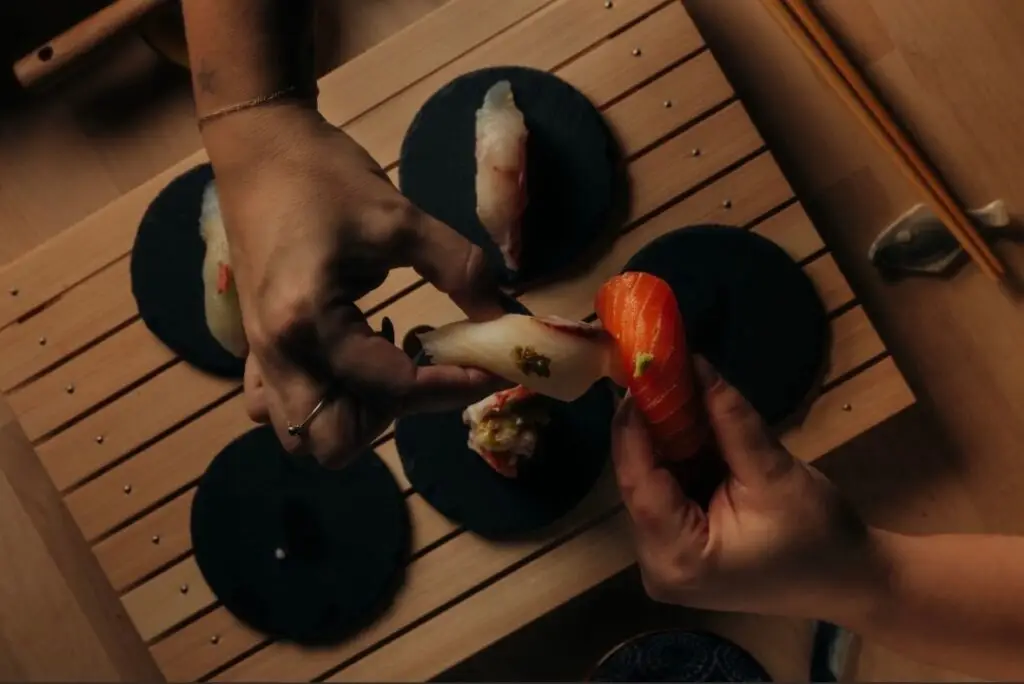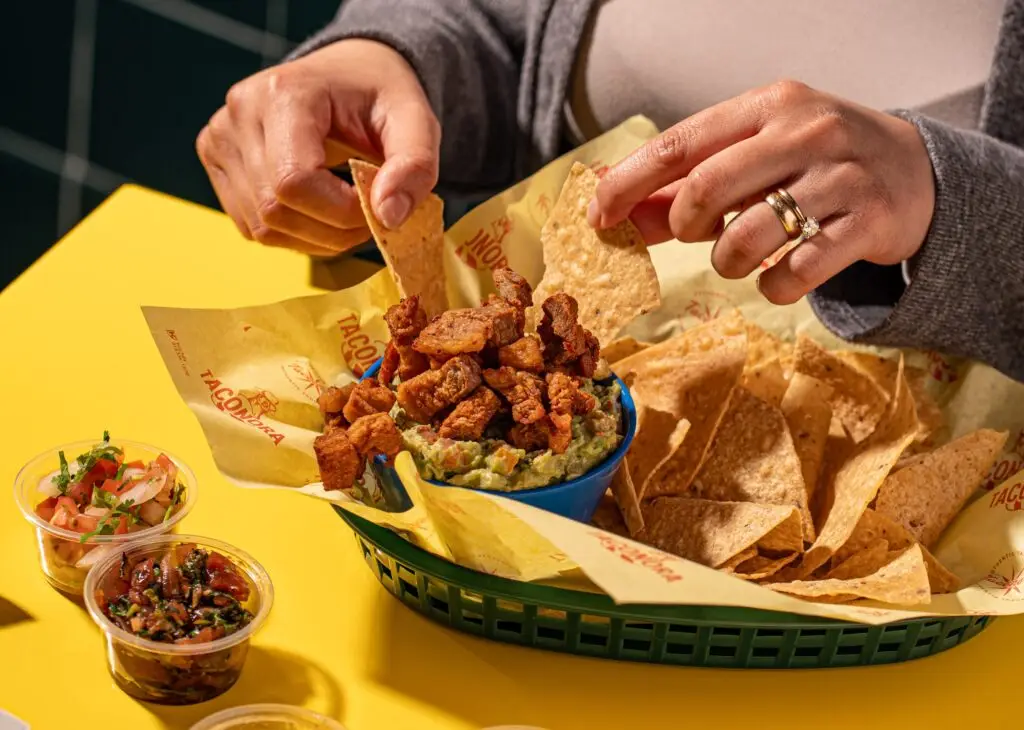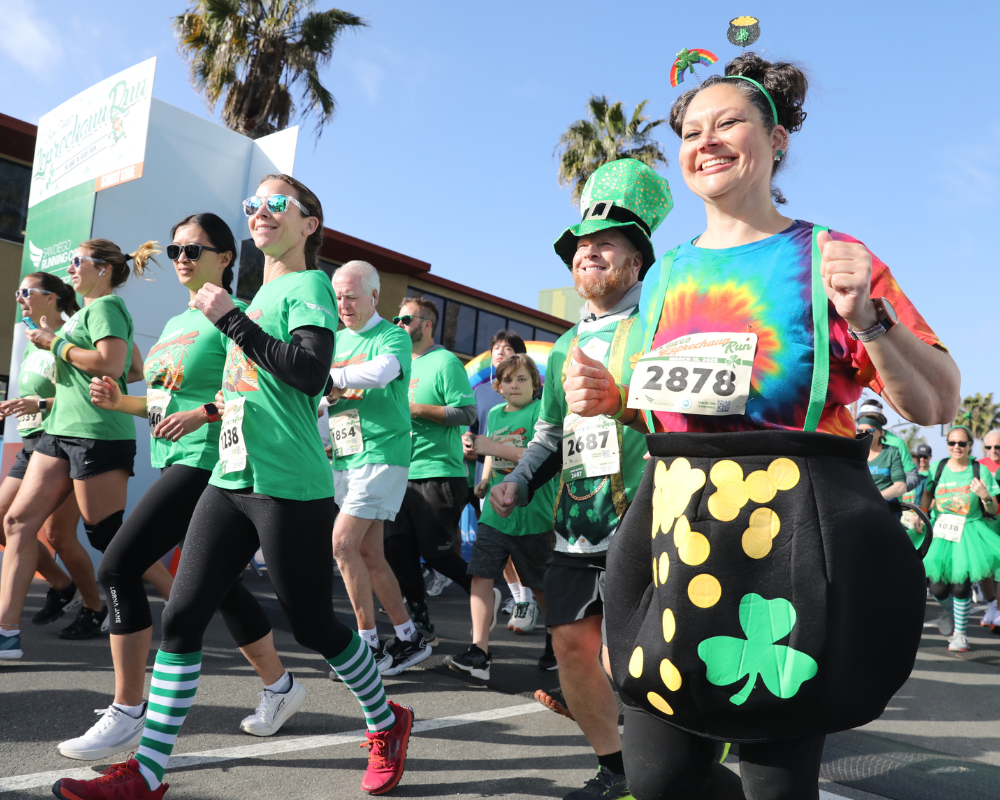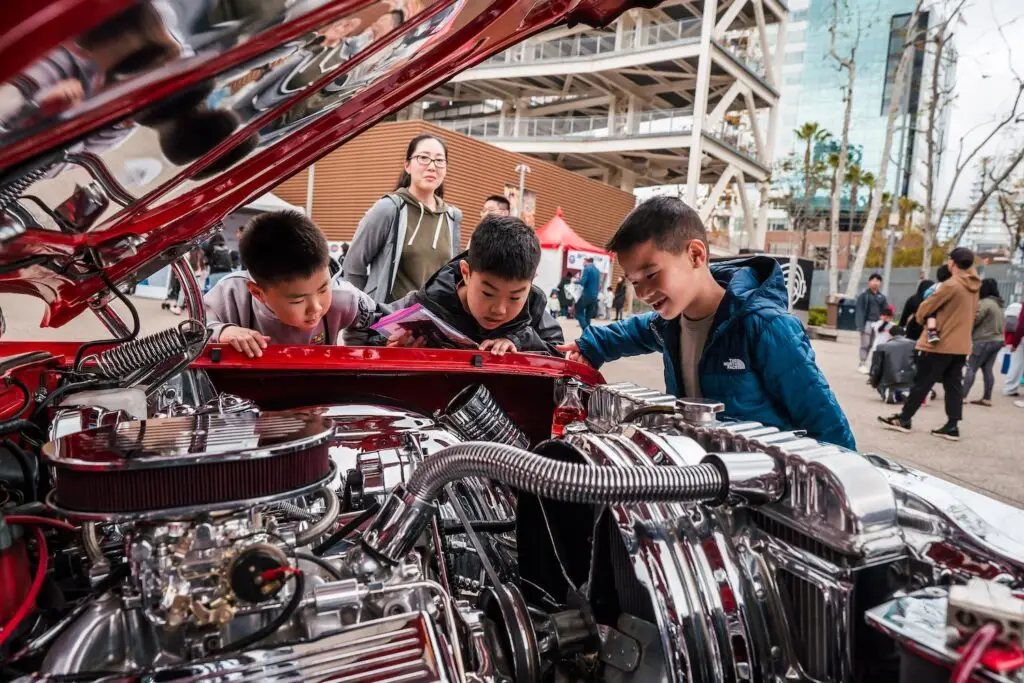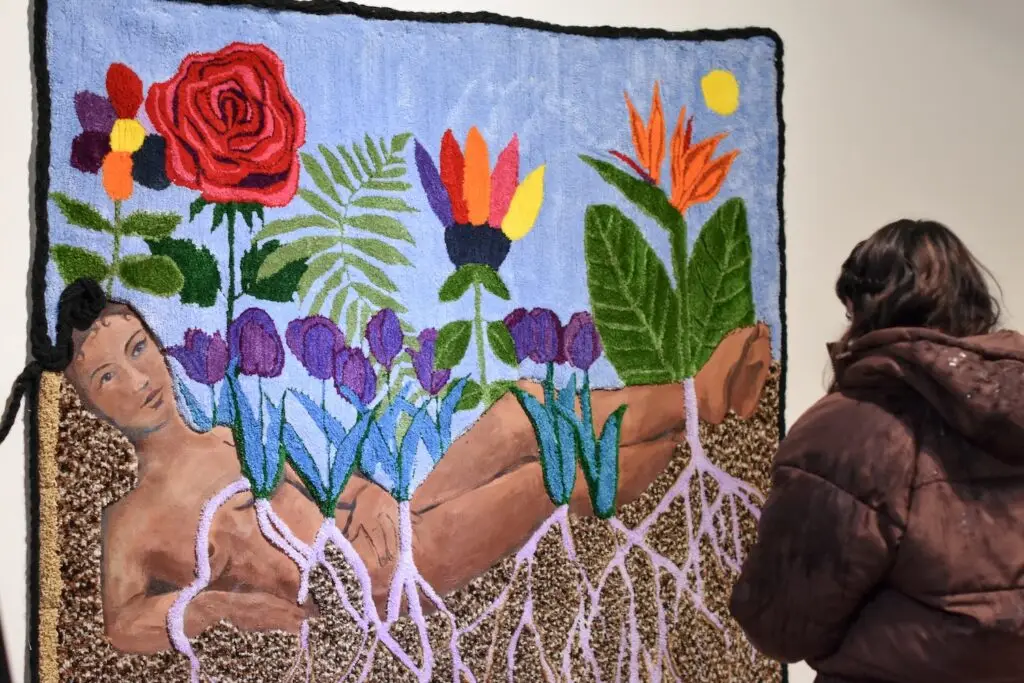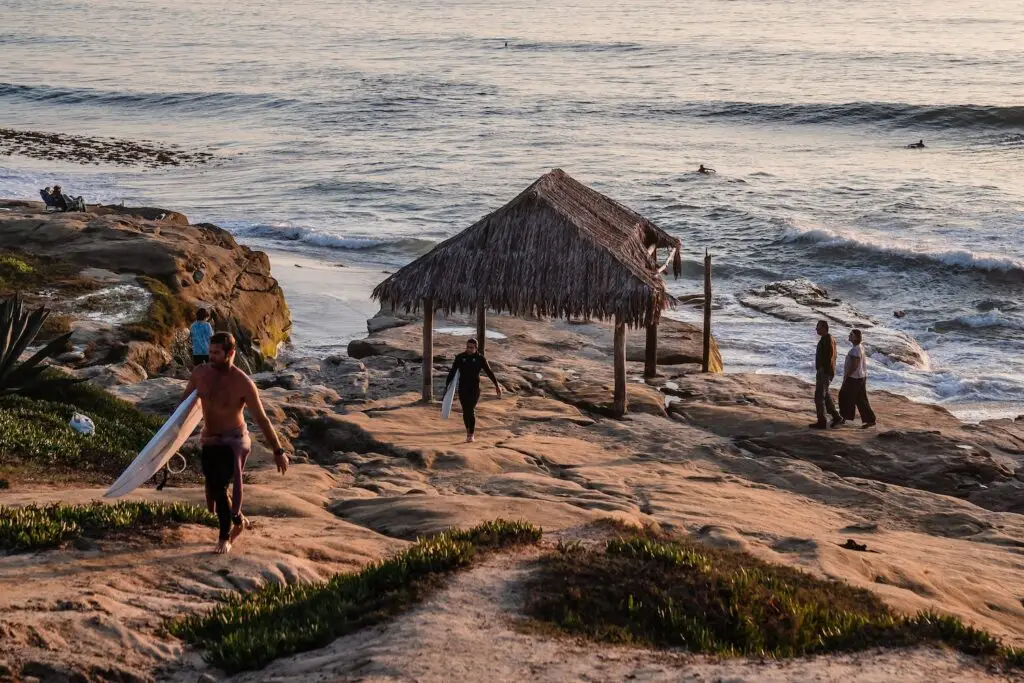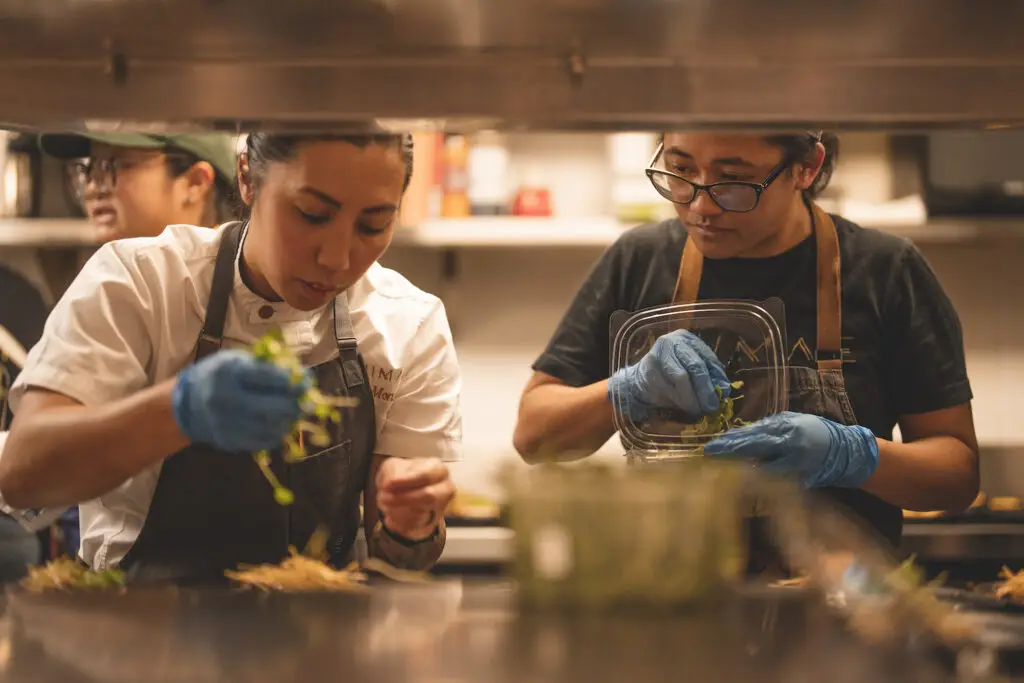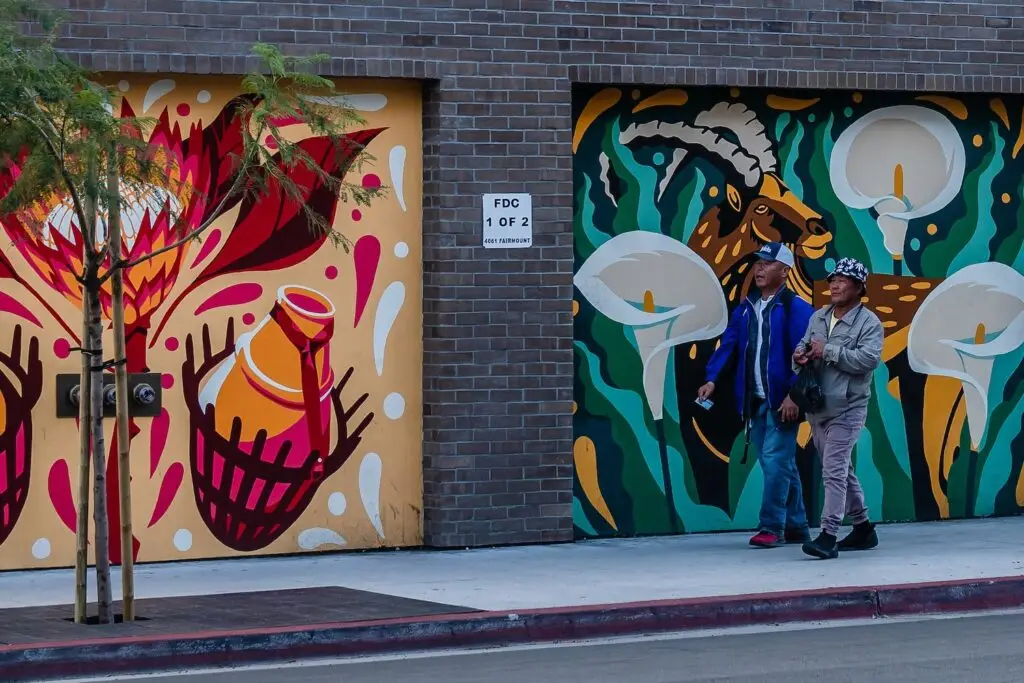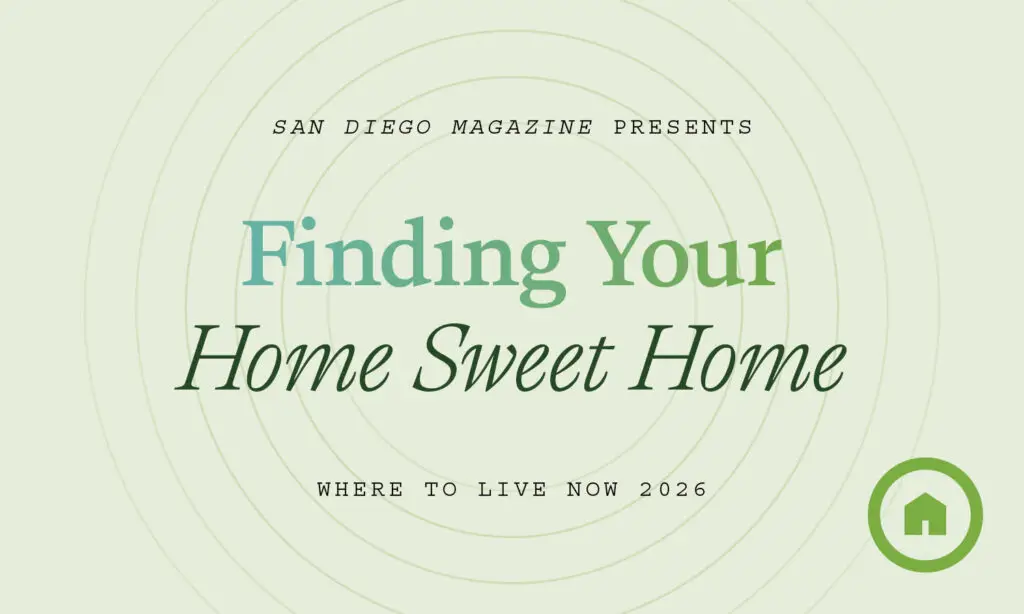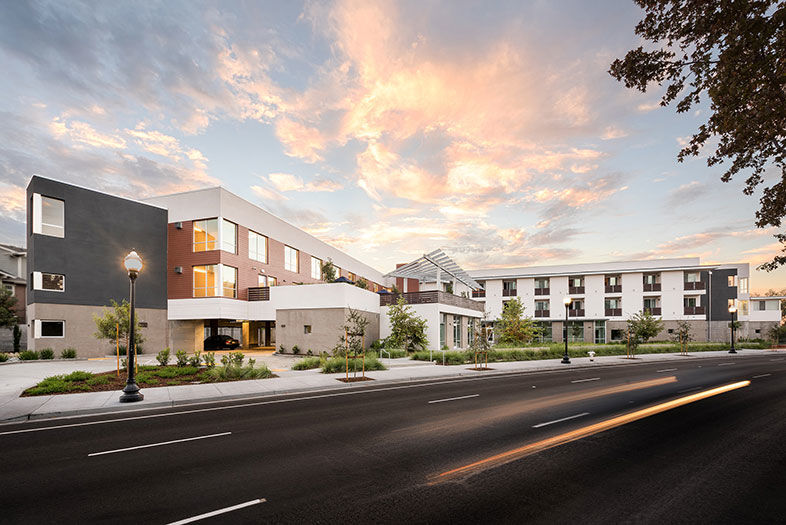Word on the Street
Can micro-living solve our housing problem?
Apartment complexes consisting of “micro-units” have been hailed by developers and real estate experts lately as a possible solution to the affordable housing shortage, and a San Diego firm recently showed how this concept can work with its latest project in Silicon Valley.
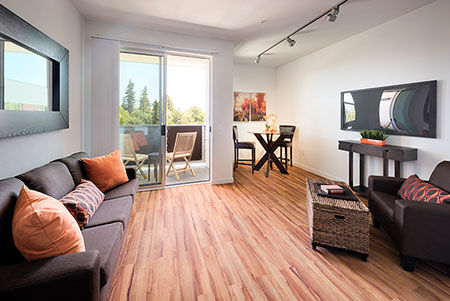
San Diego Company Helps Complete ‘Micro-Unit’ Community in Bay Area; Open Houses to See this Weekend
Rent at the new complex is around $585 a month. The average rent in Sunnyvale for a one-bedroom apartment is more than $2,600. | Photo by Vantage Point Photography
Studio E Architects helped design Parkside Studios, a new affordable housing community in Sunnyvale made up of 58 micro-units that are being rented for $585 a month. Each studio is just 370 square feet, but they come equipped with a private balcony, high ceilings, large windows, and complete kitchens and baths. All residents also have access to a large rooftop terrace.
What’s innovative about this complex is how it was constructed: Using a technique called “modular building,” the units were prefabricated and furnished more than 100 miles away in Sacramento, and then later installed on the Sunnyvale property into an L shape. You can see a cool photo essay about the process here.
This project is significant for the Sunnyvale community, since the current rental rate for a one-bedroom apartment there is estimated at $2,660 a month (after reading that, I’m no longer going to complain about my recent rent increase!). San Diego could also benefit from this development model, since gentrification and rising housing prices are also a hot topic and concern here.
Maxine Ward, an associate at Studio E, said in an email that although her company recently broke ground on a micro-unit community for at-risk seniors in Talmadge, which will have 60 affordable studios, there don’t seem to be other micro-unit or modular projects currently under construction in the city. However, she said, local developers have approached the firm with an interest in these building trends.
What do you think about the micro-unit housing trends? Tell us in the comments!
Parking changes proposed for Embarcadero
The Port of San Diego plans to change and upgrade the parking situation at both marina parks along the Embarcadero, and has invited the public to review its plan next Tuesday.
The port wants to install 180 new “smart meters,” which accept debit and credit cards, throughout Embarcadero Marina Park North and South, and raise the hourly parking rate from $1 to $2.50. The current rate of $1 per hour has not changed in 22 years, Marguerite Elicone, a spokesperson for the port, said in an email. The port is also considering increasing the parking time limit from two to three hours, changing metered hours from 10 a.m. to 8 p.m., and eliminating free parking on Sundays. Elicone said the new flexible parking rate would increase turnover of the spaces for public access and add the convenience of credit/debit card payment. The board of port commissioners will review the plan next month.
What do you think about the proposed changes?
Juice and couture coming to La Jolla Shores
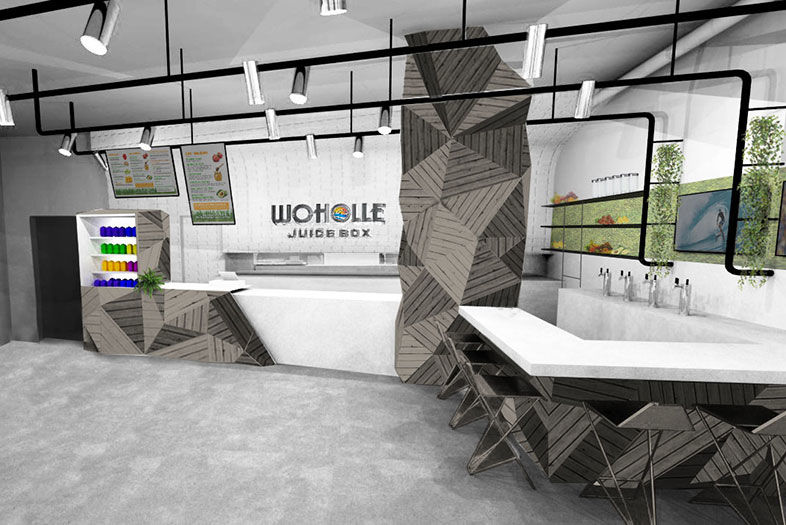
San Diego Company Helps Complete ‘Micro-Unit’ Community in Bay Area; Open Houses to See this Weekend
Woholle Juice Box will open next door to Galaxy Taco in La Jolla in April. | Image courtesy of Crowe PR
Woholle Juice Box will open next door to Galaxy Taco in La Jolla in April. | Image courtesy of Crowe PR
A new juice bar and surf retail shop is opening a few blocks away from the beach in La Jolla next month.
Everyday California, a local clothing line that also operates kayaking, snorkeling, and paddleboarding tours in the neighborhood, took over a 2,400-square-foot space next to Galaxy Taco to expand its retail store and open Woholle Juice Box. Designed by Tecture, the same firm behind Kettner Exchange and the remodel of George’s at the Cove, Woholle Juice Box will take up about 900 square feet and serve smoothies and healthy foods in addition to fresh juices. The remaining retail space will be the new home for the company’s ocean tours and equipment rentals.
House Hunting
Open houses to see this weekend
Take a break from browsing design photos on Pinterest and go peek inside people’s homes (legally!) to see what they’ve done with the interior, yard, and remodeling projects. You can also discover how much it costs to live in certain neighborhoods around the county. Right now, the average home price in San Diego County is $549,000, according to the National Association of Realtors.
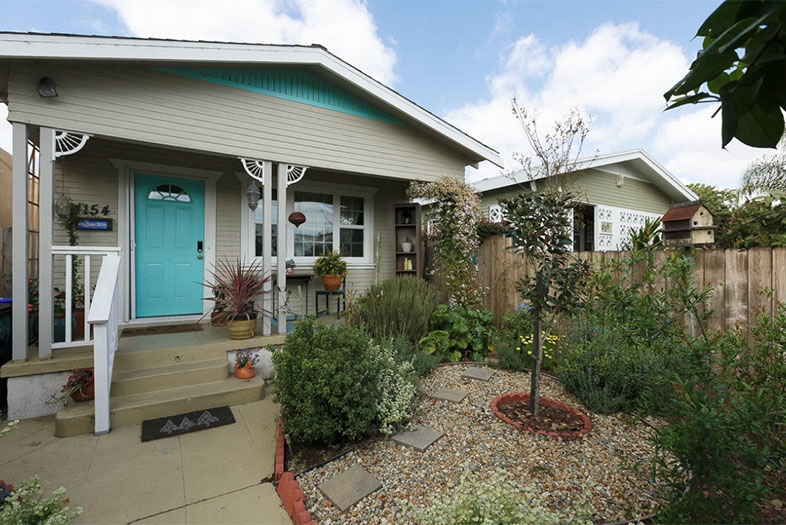
San Diego Company Helps Complete ‘Micro-Unit’ Community in Bay Area; Open Houses to See this Weekend
See the interior of a local home that was flipped on TV. | Carrington Real Estate Services/Screenshot from Redfin
See the interior of a local home that was flipped on TV. | Carrington Real Estate Services/Screenshot from Redfin
This City Heights home dates back to 1910 and was featured on A&E’s Flipping San Diego. Every part of the property was extensively renovated and modernized, like the kitchen and the new bathroom with subway tiles, while keeping the original interior design elements. It’s 756 square feet and is priced at $469,900. See it on Sunday, March 20, from 2 to 4 p.m.
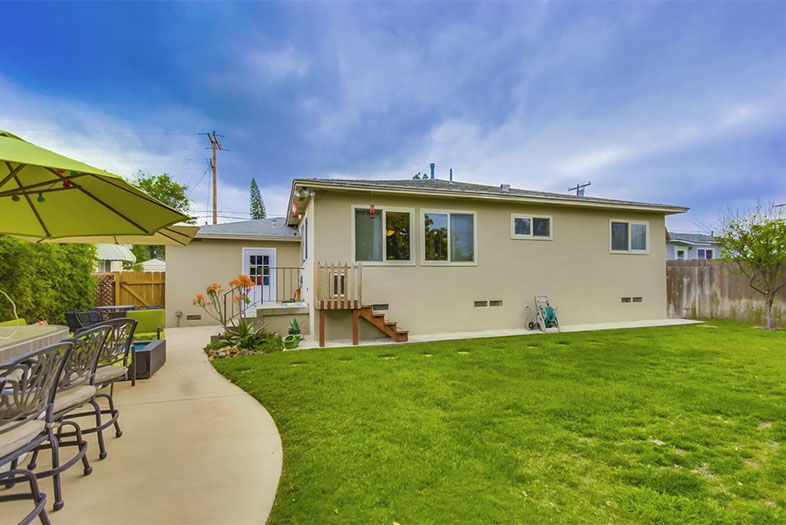
San Diego Company Helps Complete ‘Micro-Unit’ Community in Bay Area; Open Houses to See this Weekend
This home in Rolando is on a lot that spans nearly 6,000 square feet. | Photo by Keller Williams San Diego Metro/Screenshot from Redfin
This home in Rolando is on a lot that spans nearly 6,000 square feet. | Photo by Keller Williams San Diego Metro/Screenshot from Redfin
An additional $60,000 can buy you a home that has nearly double the square footage a few miles away in Rolando. This four-bedroom, two-bath home has a 5,600-square-foot lot and is close to parks and schools. See it Saturday, March 19, from noon to 2 p.m.
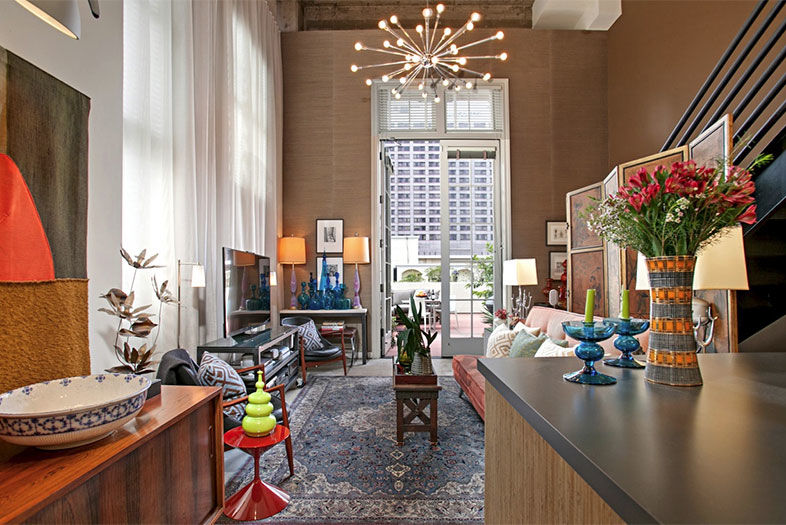
San Diego Company Helps Complete ‘Micro-Unit’ Community in Bay Area; Open Houses to See this Weekend
An urban live-work loft with 20-foot ceilings and a private terrace. | Photo by Pacific Sotheby’s International Realty/Screenshot from Redfin
An urban live-work loft with 20-foot ceilings and a private terrace. | Photo by Pacific Sotheby’s International Realty/Screenshot from Redfin
For about the same price, you could live in a loft in the historic El Cortez building. The 20-foot ceilings, private patio and more than 1,000 square feet of space is enough to make a New Yorker jealous. See it on Sunday, March 20, from 1 to 4 p.m.
News Bites
-
In case you missed it, the Hotel Del was sold last week to an insurance company from Beijing.
-
Thanks to a new state law, breweries are now allowed to offer samples at farmers’ markets, and Hillcrest was the first market in San Diego to embrace it.
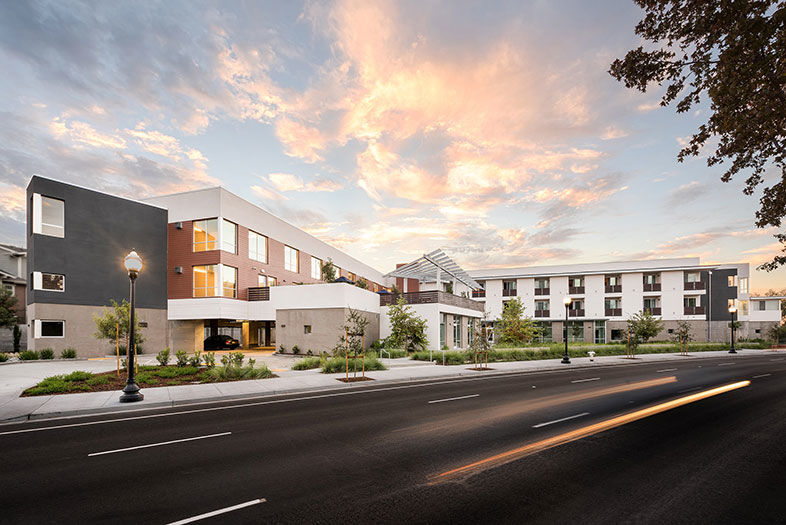
San Diego Company Helps Complete ‘Micro-Unit’ Community in Bay Area; Open Houses to See this Weekend
PARTNER CONTENT
Local architecture firm Studio E Architects designed this affordable housing complex in Sunnyvale, using modular building. | Photo by Vantage Point Photography
